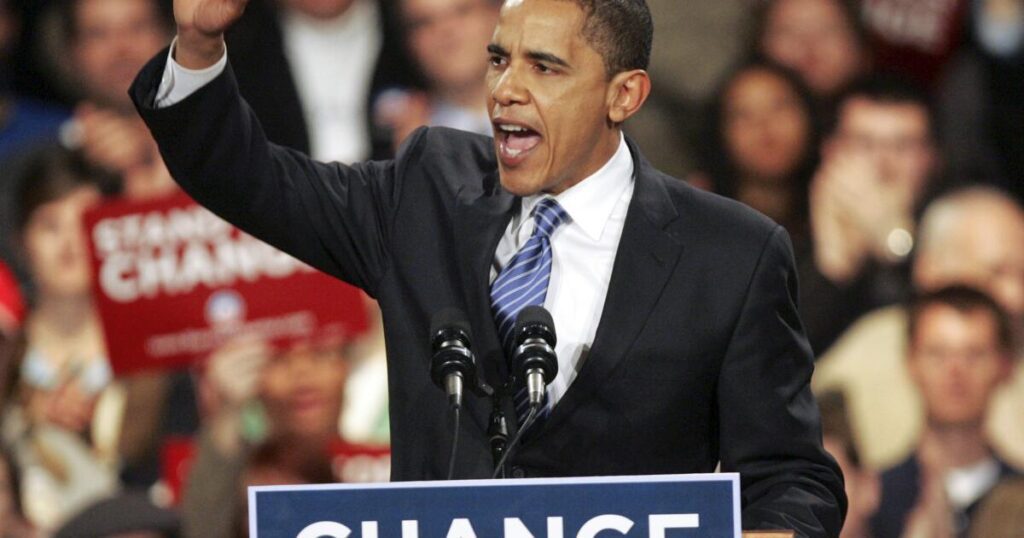There's much less fanfare for Iowa Democrats choosing their presidential nominee this year, and it's not just because President Biden is seeking re-election without a serious contest.
Instead of gathering for caucuses, a one-night spectacle in which community members publicly indicate their support for a candidate, Iowa Democrats headed to the mailbox to drop off their ballots. Results will be released on Super Tuesday, a slate of primaries and caucuses in 16 states.
The break with five decades of tradition comes in the wake of the chaos surrounding the party's caucuses in Iowa in 2020 and the rearrangement of the Democrats' 2024 calendar to prioritize more diverse states. The fallout disappointed Iowa party leaders and activists, as some felt abandoned by the national party.
What's more, it has left many concerned about the decline of Democrats' grassroots organizing and the prospects for success in a state that has transformed from a purple throwaway to a Republican stronghold over the past decade.
Nancy Bobo, a longtime Democratic activist in Des Moines, was able to vote for a presidential candidate this year by mailing in her ballot even though she was sick for the first time since 1980 and was unable to make it to her caucus in January. . 15. However, change is “a thorn in my side,” she says.
“Yes, you vote, but you lose out on all that gathering and meeting and discussing issues,” Bobo said.
Bobo, an early supporter of then-Sen. Barack Obama's campaign recounted his record-breaking rally on January 3, 2008, when so many people gathered at a high school that they had to move from the auditorium to the gymnasium.
As Obama's caucus chair, Bobo was responsible for courting her peers, especially those who supported candidates who did not attract 15 percent of the chamber, the threshold for Democrats to consider candidates viable.
“The excitement in the air was absolutely unparalleled,” Bobo said of this caucus. “I doubt that what we are doing now will have much impact on the national stage at all.”
In the run-up to 2024, the Democratic National Committee decided to rearrange early voting states at Biden's request, prioritizing diverse voters in states like South Carolina and Michigan over majority-white voters in Iowa. Critics, including Biden, have said the Iowa caucuses do not represent the party.
The national party worked with Iowa Democrats “to ensure a more equitable and accessible primary process” and is providing financial and other resources to “strengthen the party’s infrastructure in the state,” an NDP spokesperson said in an email.
While more than 200,000 Iowans participated in the 2008 elections, which marked the beginning of Obama's rise to the White House, this record is considered rare for either party. Even during a competitive race, caucus participation typically represents a modest percentage of a party's registered voters.
Previous plans to make the caucuses more accessible to voters who are older, have disabilities, work the night shift or can't get child care have not materialized. Then rapid revisions to the way precinct results were announced — at the party's request — collapsed on the night of the 2020 Democratic caucuses, leading to the failure to produce a clear, undisputed winner.
“There's been a lot of drama in the way we've done it in the past,” said Rita Hart, chairwoman of the Iowa Democratic Party. “One person's idea of excitement and drama is another person's complete and complete mess. What the Democratic Party really needs to focus on is excitement, but making sure it's very productive.”
Despite disappointment with the national party's decision, the Iowa Democratic Party is reimagining the caucuses as an opportunity to reconsider how we encourage people to attend “and then engage in the kind of conversations that strengthen us as Democrats,” Hart said.
According to the party, more than 6,000 Iowa Democrats participated in the January 15 caucuses, which focused, among other things, on electing individuals to serve as delegates to the Democratic National Convention in Chicago in August.
They received more than 19,000 applications for presidential preference cards, higher than the number that participated in the 2012 Democratic caucuses, the last time a Democratic president was seeking re-election. As of Friday, more than 11,000 people had been repatriated.
Sherry Kiskunas of Waterloo had never voted in a caucus before this year. She was recruited to help run her constituency's caucus in 2012. Before then, she said, she “didn't know they existed.”
Even before the difficulties of the 2020 election, Kiskunas said the caucuses could be chaotic.
“It wasn't so bad when I was vice president because I wasn't in charge. But when I was president, it was terrible,” she said.
I remembered counting and listing the people migrating from supporters of one candidate to supporters of another. In one year, two arenas in one room added to the confusion.
“People are getting impatient, they want to leave,” Kiskunas said. “I want to go home too, but the count has to be right.”
Mail-in ballots allowed her to vote this year. She added, “The party is suffering despite this.”
“You don't have the opportunity to build the party. You don't have the opportunity to have the facade that we had,” Kiskunas said.
Sarah Riley, an attorney in Cedar Rapids, thinks moving away from the caucus format makes sense. She does not believe participation on the ground will diminish; Alternatively, primaries could result in more people participating.
Riley, who has volunteered hundreds of hours on presidential campaigns, said she doesn't think energy disappears just because the method changes.
Even with a different way to vote, a return to the early window could still bring presidential hopefuls to a rural Midwestern state that has an affordable media market. The Iowa Democratic Party said it approved the changes only this year with assurances that Iowa would be considered among the top states in 2028.
But Bobo is skeptical.
“Once it's gone, I think it's very difficult to get it back,” she said.
Fingerhut writes for the Associated Press.
